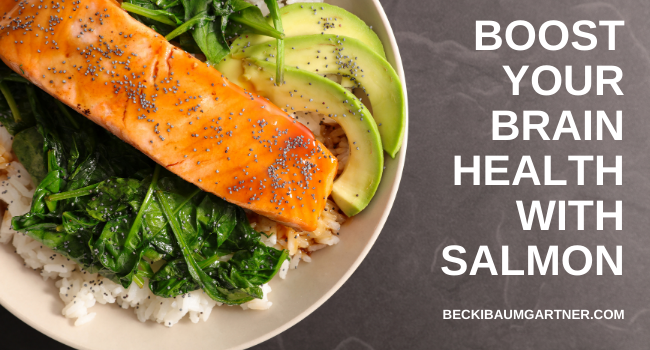Why Nutritional Supplements are Necessary for Overall Health in Today’s Society
It’s a known fact that today’s foods are nutrient-depleted. We also know that vitamin deficiency is a cause of chronic diseases.
But just what are vitamins and minerals? How does it all tie in together? What does each vitamin and mineral do or help, and how much do you need?
First off, we’ll talk about vitamins and minerals in general.
What are Vitamins & Minerals?
Minerals are inorganic substances and essential components of tissues and fluids. For example, vitamins, enzymes, and hormones need minerals to function correctly.
Vitamins are organic substances essential for life. And the body is not able to synthesize most vitamins on its own.
Therefore, we either need to get vitamins from our food–or nutritional supplements if that’s not possible.
Next, we will review the essential nutritional supplements, what each does, and how much you need.
The Basic Vitamins & Minerals and What They Do for Your Body
Vitamin A functions in vision, growth, and development, strengthening your immune system, and antioxidant. Adult men should have 5,000 IU and adult women 2,500 IU.
Carotenoids are potent antioxidants, help with your immune function, and are involved in the growth and repair of your tissues. The optimal intake is 5,000-25,000 IU of mixed carotenoids.
Vitamin D promotes calcium and phosphorus absorption in the intestines, increases calcium deposition in your bones, mobilizes calcium and phosphorus from bones, prevents certain cancers, and is essential for proper thyroid function. The optimal intake is 2,000-5,000 IU.
Vitamin K is essential for blood clotting, bone formation and is an antioxidant. The optimal intake is 50 to 500 mcg.
Vitamin E is an antioxidant essential for immunity, wound healing, and red blood cell formation. The optimal intake is 400 IU.
Vitamin B1 (Thiamine) is essential for energy (carbohydrate) metabolism, neurological activity, and brain and heart function. Optimal intake is 5-10mg.
Vitamin B2 (Riboflavin) is essential for energy production and fatty acid and amino acid synthesis. The optimal intake is 10-15 mg.
Vitamin B3 (Niacin) is essential for energy production, formation of steroid compounds, red blood cell formation, cognitive function, and mood. The optimal intake is 50-100 mg.
Vitamin B5 (Pantothenic Acid) is essential for the metabolism of carbohydrates, proteins, and fats in energy production, adrenal hormones, and red blood cells. The optimal intake is 50-100 mg.
Vitamin B6 (Pyridoxine) is essential for forming body proteins, neurotransmitters, red blood cells, and immunity. The optimal intake is 10-25 mg.
Folate prevents neural tube defects (must be taken by mother in early pregnancy). It is also essential for many processes in the body (reduces homocysteine levels). Cardiovascular health. Red blood cell production. Skin and nail health. The optimal intake is 400-800 mcg.
Vitamin B12 (Cobalamin) is essential for synthesizing DNA, red blood cells, and nerve development. The optimal intake is 50-200 mcg.
Biotin is essential for the metabolism of fats, proteins, and carbohydrates; nail and hair growth.
Vitamin C is an antioxidant essential for immunity, collagen formation, bone development, cancer prevention and treatment, gum health, hormone and amino acid synthesis, adrenal-gland hormones, and wound healing. Optimal intake is 500-1,500 mg.
Choline is required to manufacture the neurotransmitter acetylcholine, metabolism of fats. So choline isn’t actually a vitamin, but it is an essential micronutrient, and it’s usually grouped with the vitamins because it works in concert with many of them.
Calcium is essential for bone and teeth formation, muscle contraction, heartbeat, blood clotting, and nerve impulse. Optimal intake is 1,000-1,500 mg.
Magnesium is essential for bone and teeth formation, energy production, glucose metabolism, and muscle and nerve impulse. The optimal intake is 400-600 mg.
Phosphorus is essential for growth, bone production, energy production, and kidney function. Optimal intake is 800-1,200 mg.
Potassium is essential for nerve transmission, water balance, acid-base balance, heart function, kidney function, and adrenal function. Optimal intake is 2,000-3,000 mg.
Sodium is essential for acid-base balance, muscle contraction, nerve impulse, and amino acid absorption. Optimal intake is 2,000 mg.
Manganese is essential for enzyme systems involved with energy production, blood sugar control, fatty acid synthesis, thyroid hormone function, connective tissue and bone formation, sprains, and strains. The optimal intake is 5-10 mg.
Chromium is essential for blood sugar control. The optimal intake is 200 mcg.
Copper is essential for collagen formation, red blood cell formation, bone formation, energy production, mental functions, and many other enzyme systems. The optimal intake is 2-3 mg.
Iron is essential for hemoglobin production to supply oxygen to cells, collagen synthesis, and normal immune function. The optimal intake is 10 mg, women with heavy cycle 20 mg.
Selenium is an antioxidant and is essential for cancer prevention, immunity, thyroid function, and fetus development during pregnancy. The optimal intake is 200 mcg.
Iodine is required to manufacture the thyroid hormone. The optimal intake is 250 mcg.
Molybdenum is active in enzymes involved with the metabolism of alcohol, uric acid, and sulfur. The optimal intake is 200 mcg.
Silicon is essential for bone, cartilage, and ligament formation and is necessary for elasticity. The optimal intake is 50 mg.
Vanadium is essential for blood sugar balance and bone and teeth development. The optimal intake is 50 mg.
Zinc is involved in over 200 enzymatic reactions and is required to manufacture many hormones. Zinc is also essential for immunity, skin healing, growth, vision, blood sugar metabolism, antioxidant support, reproductive development, and fertility. The optimal intake is 15-30 mg.
So, What Do You Think?
The list above shows only the basic vitamins and minerals, which we should be getting daily from our food intake.
Do you think you are getting all of the above vitamins and minerals in the optimal intake amounts from your current diet?
Probably not.
And, the problem doesn’t only stem from our “rushed eating” and “fast-food” society. Unfortunately, our food sources are so depleted most do not contain the essential vitamins and minerals we need. Even the most health-conscious choices probably do not provide enough.
Therefore, we need to supplement.
Source: Stengler, M., Balch, J., Balch, R. “Prescription for Natural Cures, 3rd Edition“. Nashville: Turner Publishing Company. 2004.




